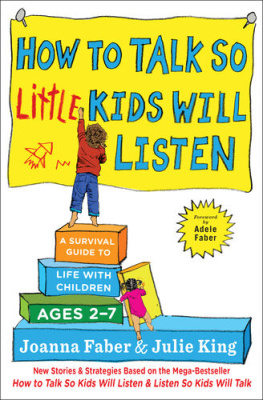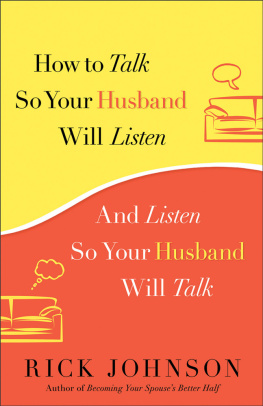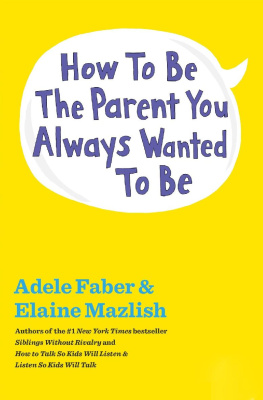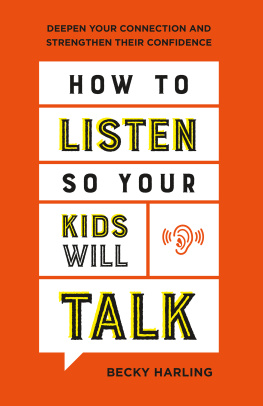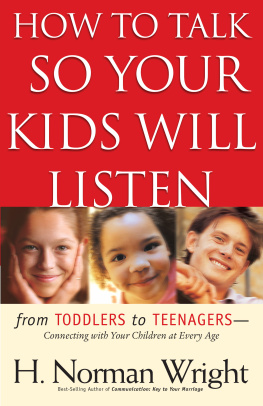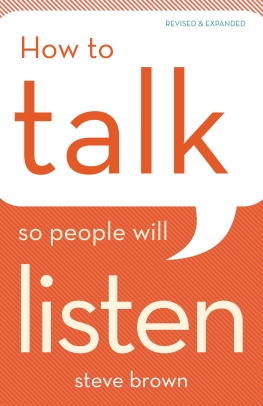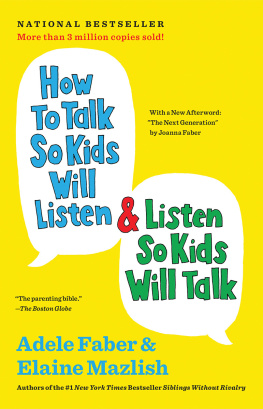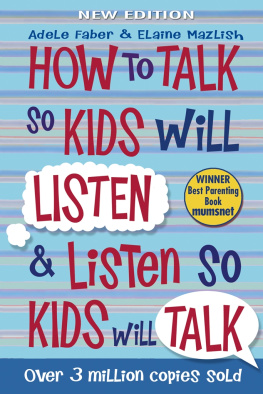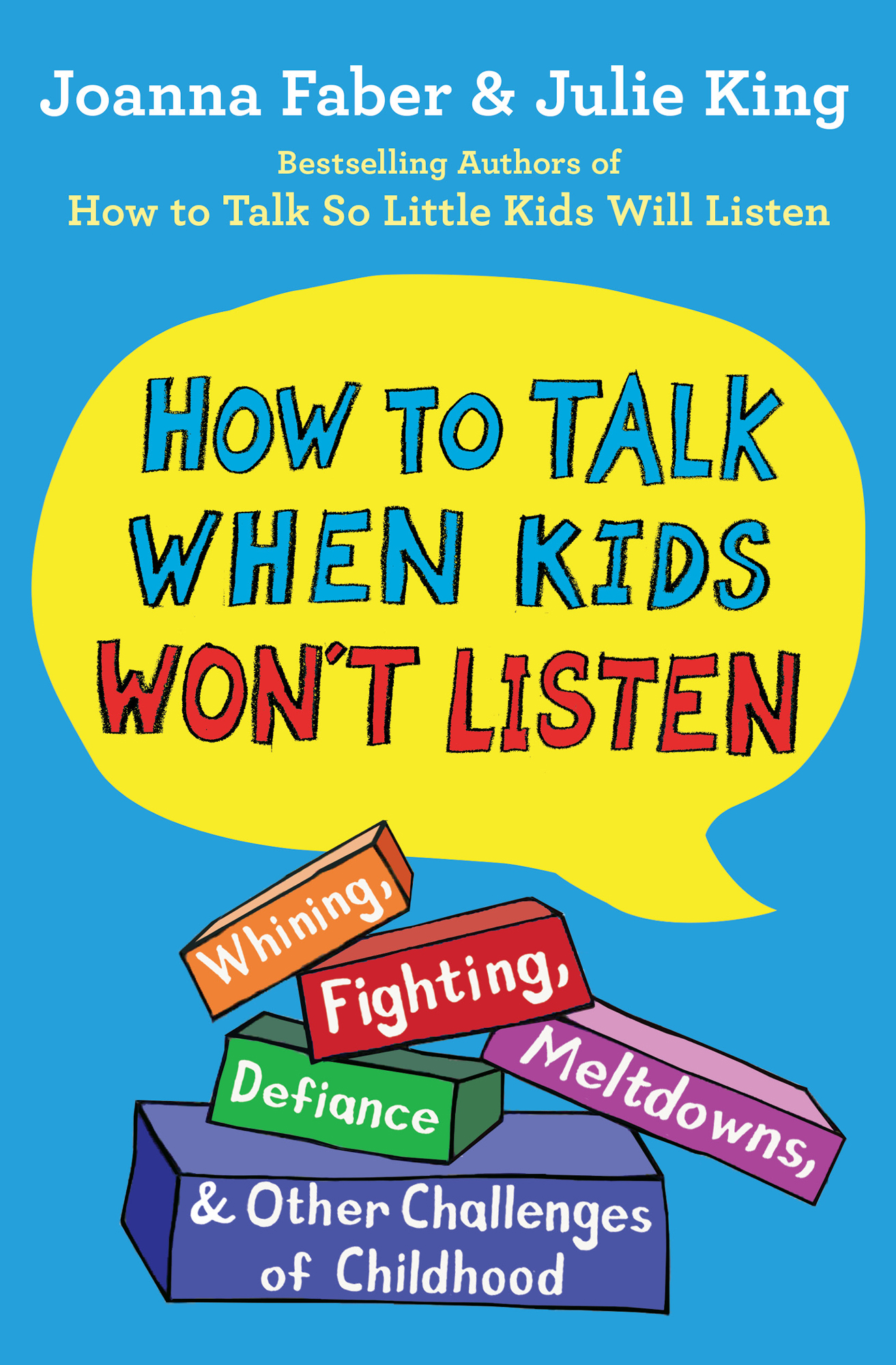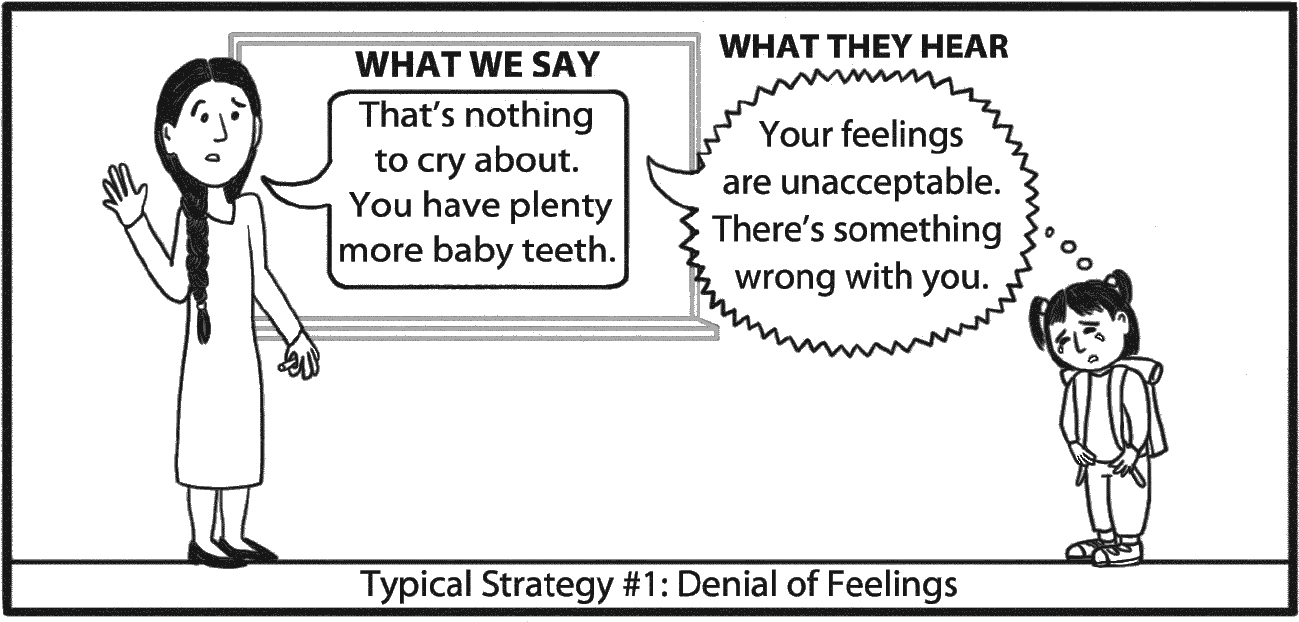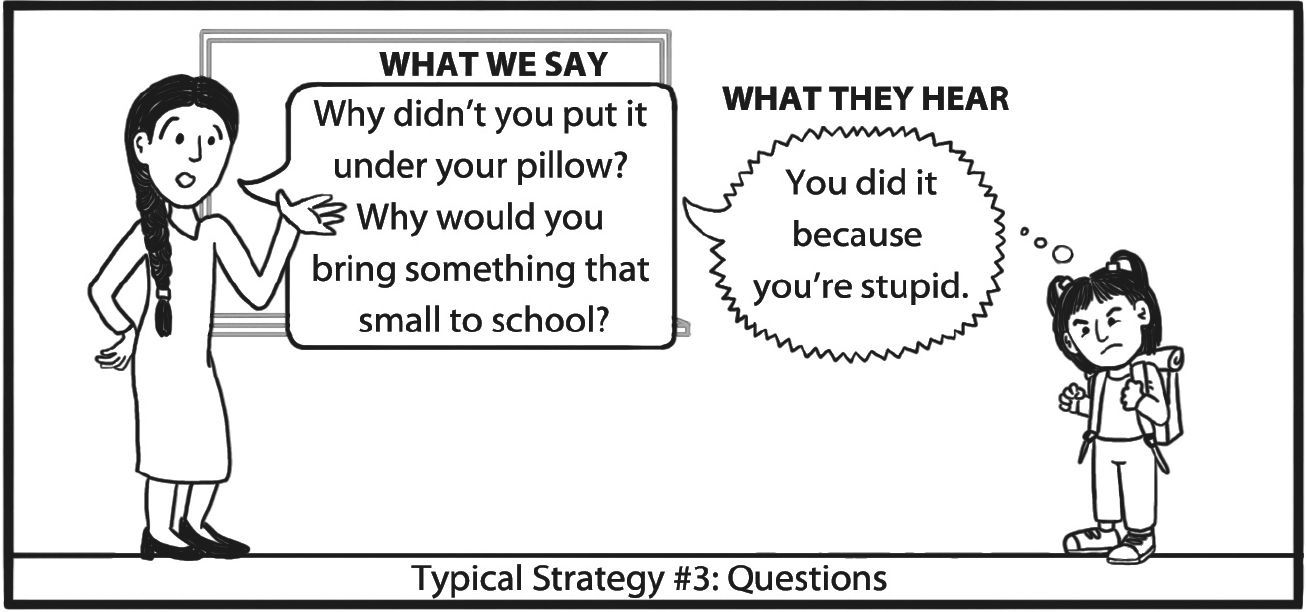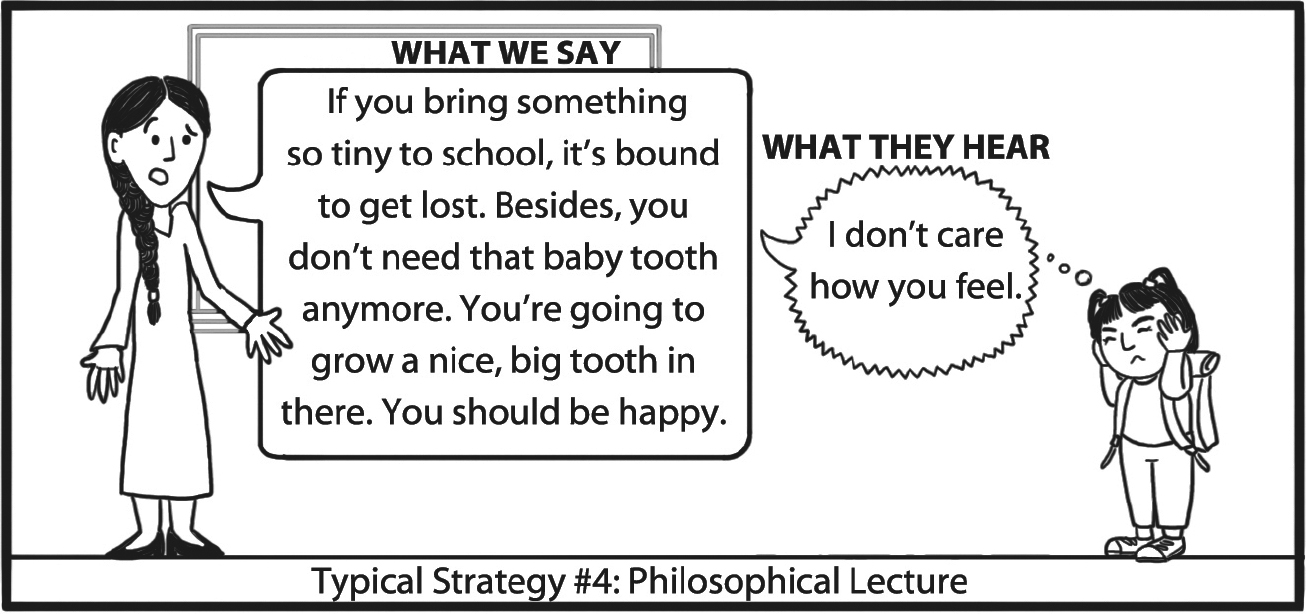Joanna Faber & Julie King
Bestselling Authors of How to Talk So Little Kids Will Listen
How to Talk When Kids Wont Listen
Whining, Fighting, Meltdowns, Defiance, and Other Challenges of Childhood
Thank you for downloading this Simon & Schuster ebook.
Get a FREE ebook when you join our mailing list. Plus, get updates on new releases, deals, recommended reads, and more from Simon & Schuster. Click below to sign up and see terms and conditions.
CLICK HERE TO SIGN UP
Already a subscriber? Provide your email again so we can register this ebook and send you more of what you like to read. You will continue to receive exclusive offers in your inbox.
Before I became a parent, I didnt know I could ruin someones day by asking them to put pants on.
Anonymous
Introduction
Welcome to our book, dear readers. Here is a tour of the territory. Part One is an illustrated overview of the essential tools youll need to survive life with kids, from toddlers to early teens. We included activities at the end of each chapter so you can practice your skills if youre in the mood. In Part Two youll find popular topics requested by our readers. We also share stories sent to us by parents and teachers, and we answer questions about some of their toughest kid-wrangling challenges.
As always, we love to hear from you. We invite you to share your stories and questions with us at . Maybe your topic will be in our next book!
Note: Names and other identifying details have sometimes been changed to protect the frazzled (although occasionally weve used real names upon request). Weve attempted to choose aliases that faithfully represent the cultural or ethnic identities of the storytellers.
. Some of the letters from parents included in this book are composites of questions that more than one correspondent have asked.
PART ONE THE BASIC COMMUNICATION TOOLS
If youve ever come across advice about how to survive life with kids, youre probably familiar with the following admonitions: be kind but firm, consistent but flexible, supportive but not hovering, and establish clear limits. And dont forget to give unconditional love, stay connected, show empathy, and while youre at it, be sure to keep calm!
Who could argue with this commonsensical wisdom? It sounds like it could be doable. Especially before there are actual kids in your life!
Of course, those of us who have taken the leap into life with flesh and blood children soon find ourselves in situations where the theory does not seem to apply. When your two-year-old is screaming like a banshee because you gave him the wrong color cup; your five-year-old is having an epic meltdown over his homework assignment to draw an object that begins with B (and he refuses to just draw a ball); your fashion-conscious twelve-year-old is ranting because you are the only parent in the world who wont let her buy those ultra-expensive designer sneakers; your newly-licensed sixteen-year-old ignores your prohibition on driving in bad weather in order to go to a party during a blizzard youre in the middle of a battle and you dont find yourself feeling that loving connection.
So what do I do now?
If youve ever asked yourself this question, were glad youre here! Over the last few decades, weve been teaching parents, educators, and other adults who live or work with children how to get through the really tough timesall those everyday pull-your-hair-out momentswithout losing sight of the bigger picture. (Okay, well, occasionally losing sight, but only temporarily!) In this book, youll find the tools you need to deal with the inevitable conflicts between adults and children.
Chapter 1 Dealing with Feelings
Why Cant They Just Be Happy?
When you thought about life with childrenbefore you had any in your lifewere guessing you imagined good times.
By now you may have discovered that the reality of life with kids often looks different from the fantasy.
When faced with conflict or misery, we want to get back to the happy scene we have in our heads. But our most valiant and well-meaning efforts to be helpful, or to fix a problem, can end up making things worse.
Why is it that when we try to calm kids down, they sometimes get more worked up? Our intention is to be soothing. To teach them that this tiny bump in the road of life can be driven over without crashing the entire vehicle into a ditch. It will be OKAY! But the message they hear is a different one: You cant have what you want and I dont care, because your feelings are not important enough to bother about. Now the distress is doubledadded to the original disappointment over the missing granola bar is that lonely feeling you get when you realize nobody cares that youre sad.
Its true that for adults a granola bar ranks way down on the scale of global disasters. But for a disappointed kid, that missing treat is just as upsetting as any of the petty disasters that befall us grown-ups during the day. Your annoying coworker constantly uses your pens and doesnt replace them? Stop complaining. Its not a big deal! Your friend shared your personal health problems with the whole neighborhood? Youre overreacting. Dont be so sensitive. The mechanic overcharged you to repair your transmission and it broke down again a week later and he wouldnt give you a refund? Hey, thats life! No use getting upset about it.
Dont get mad at us. Were just trying to help you by explaining why youre wrong to feel bad.
Its pretty infuriating when our own disappointments, admittedly insignificant in the grand scheme of things, are summarily dismissed. When someone tries to calm us down by minimizing our troubles, we end up feeling worseand we may even direct a fresh wave of irritation at the person who was trying to help. Our kids are no different.
Even trained professionals can unintentionally aggravate an aggrieved child:

